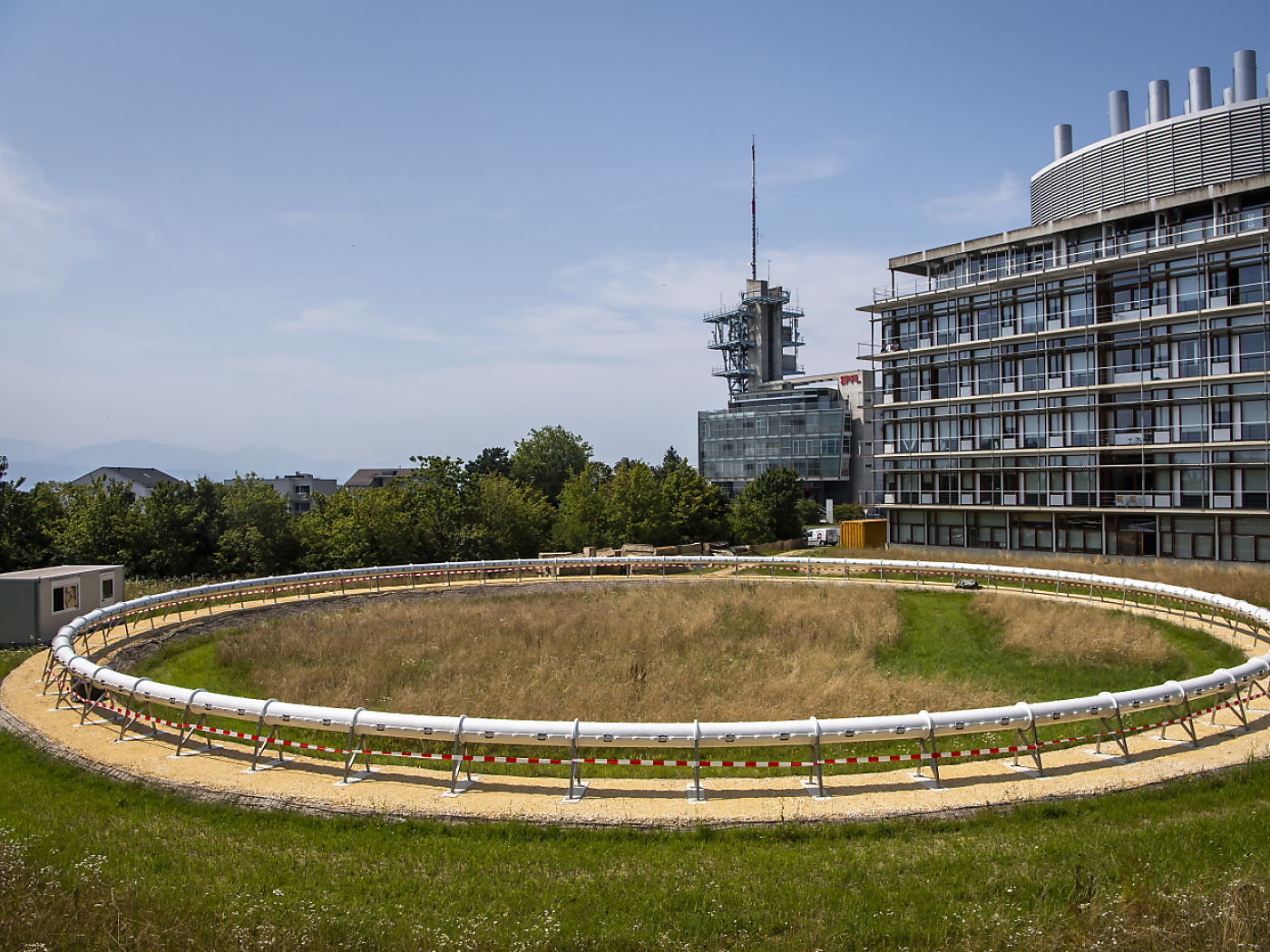
Swiss set record for world’s longest hyperloop test

Swiss scientists have established a record for the longest-ever hyperloop journey at a test facility in Lausanne, Switzerland. They aim to test technology that could be used in new-generation high-speed transport systems.
+ Get the most important news from Switzerland in your inbox
The team from the Federal Institute of Technology Lausanne (EPFL), the School of Business and Engineering Vaud (HEIG-VD) and Swisspod Technologies carried out 82 tests using a 120-metre hyperloop test track – a circular construction that can simulate long distances using different sized pods – as part of the LIMITLESS (Linear Induction Motor Drive for Traction and Levitation in Sustainable Hyperloop Systems) project.
The longest distance covered by a pod during a trial was 11.8 km, with a top speed of 40.7 km per hour.
+Hyperloop prototype track unveiled in Switzerland
“In a full-scale system, this translates into a journey of 141.6 km, roughly the distance between Geneva and Bern (…) and speeds of up to 488.2 km/h,” EPFL said in a statement on Tuesday. It described this success as “decisive for the high-speed transport sector”.
A crucial engine
Hyperloop technology relies on ultra-fast convoys running in a vacuum, with no friction and much lower air resistance than in the open air.
The EPFL test facility consists of a “circular track” with a diameter of 40 centimetres and a circumference of 125.6 metres. This is a scaled-down version (1:12) of the hyperloop system described in the EPFL doctoral thesis of Denis Tudor, CEO of Swisspod.
+Hyperloop projects inch closer to reality
A hyperloop comprises two main elements: an all-electric vehicle and an infrastructure of low-pressure tubes, explains EPFL. To lower costs, the idea is that the vehicle rather than the infrastructure carries the energy needed to propel it.
“Most of the effort is focused on developing a new linear induction motor (LIM), a key component of the hyperloop’s propulsion system, designed to offer better performance at high speeds”, EPFL said
Freight transport
Future tests at the EPFL facility aim to further validate more efficient versions of the LIM-based hyperloop propulsion and levitation as well as explore the system’s real-world capabilities, limitations, and prospects, while offering vital data for accelerating the path to market deployment, EPFL said.
Hyperloop freight tests are scheduled to take place in the United States in the coming years.
“This is a key step towards making hyperloop a reality for people transportation and changing the way we connect, work and live,” said Denis Tudor cited in the press release.
Translated from French with DeepL/sb
This news story has been written and carefully fact-checked by an external editorial team. At SWI swissinfo.ch we select the most relevant news for an international audience and use automatic translation tools such as DeepL to translate it into English. Providing you with automatically translated news gives us the time to write more in-depth articles.
If you want to know more about how we work, have a look here, if you want to learn more about how we use technology, click here, and if you have feedback on this news story please write to english@swissinfo.ch.

In compliance with the JTI standards
More: SWI swissinfo.ch certified by the Journalism Trust Initiative











































You can find an overview of ongoing debates with our journalists here . Please join us!
If you want to start a conversation about a topic raised in this article or want to report factual errors, email us at english@swissinfo.ch.